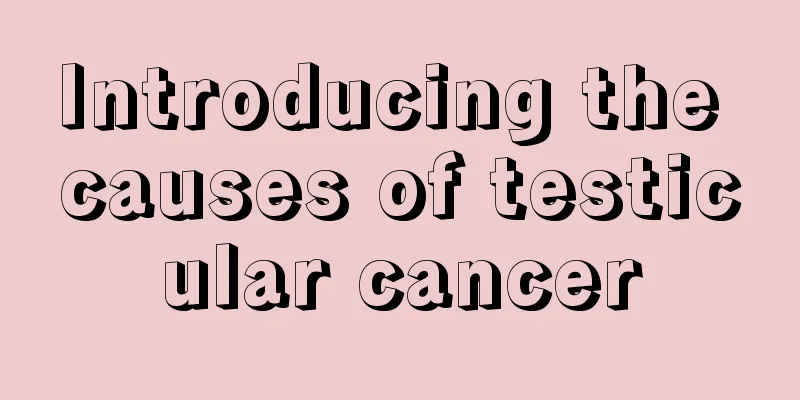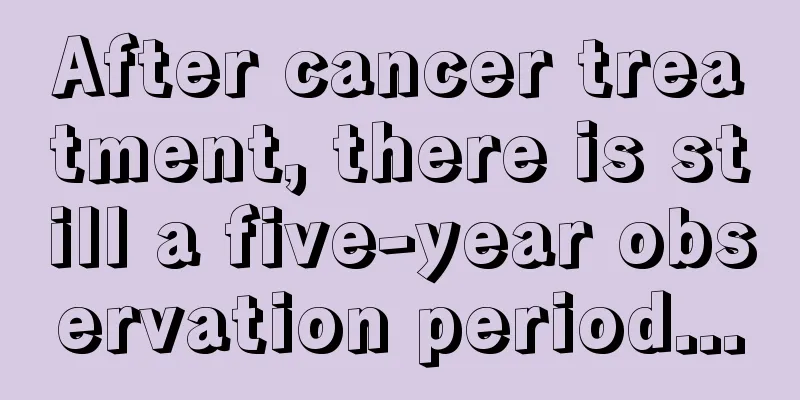Introducing the causes of testicular cancer

|
In real life, some people feel that they have contracted cancer without knowing it, because some cancers may not cause obvious discomfort in the early stages, and by the time they are discovered, they are already in the middle or late stages, which is a pity. However, there are reasons for the occurrence of diseases. Today, I will introduce to you the causes of testicular cancer. Testicular cancer is currently the malignant solid tumor with the highest clinical cure rate. Even for patients with testicular cancer that has metastasized, there is a high chance of clinical cure through surgery and combined radiotherapy and chemotherapy. Therefore, it is important to emphasize that the goal of testicular cancer treatment is to achieve cure, not to alleviate or prolong survival time. Testicular cancer is different from other types of cancer. It mainly affects the normal function of the testicles. If it is discovered early, it can be easily cured as long as it is treated properly. The age group of 15 to 40 years old is the most common period for testicular cancer. If you find a lump in your scrotum, it is best to see a doctor and do some regular testicular self-examination every month. Common causes of testicular cancer include: 1. Abnormal testicular development: Men with abnormal testicular development are prone to testicular cancer. 2. Cryptorchidism: Normally, the testicles will descend to the scrotum. If the testicles do not descend to the scrotum but remain in the abdominal cavity or groin, the risk of testicular cancer in men will increase significantly. Even surgery to move the testicles to the scrotum will not help. 2. Abnormal testicular development: Men with abnormal testicular development are prone to testicular cancer. 3. Genetic factors: Studies have shown that the occurrence of testicular cancer is related to genetic factors. 4. Klinefelter's syndrome: People with Klinefelter's syndrome (a sex chromosome abnormality with symptoms of low male hormone levels, infertility, large breasts, and small testes) are susceptible to testicular cancer. 5. A history of testicular cancer: Men with a history of testicular cancer are more likely to have testicular cancer in the other testicle. A family history of testicular cancer: If a person's father or brother has testicular cancer, he or she is more likely to have the disease than others. |
<<: What is the cure rate for testicular cancer
>>: How to avoid recurrence of testicular cancer
Recommend
Are brass jewelry harmful to the body?
Brass is a relatively common metal and has many u...
Can bronchoscopy diagnose lung cancer? How to treat lung cancer?
The morbidity and mortality of lung cancer are ve...
What is the principle of dry cleaning?
In addition to water washing, dry cleaning is als...
What is the cause of pain in the soles of my feet
When walking or resting at home, people may exper...
Can I eat sea cucumber after bladder cancer surgery
Bladder cancer, as a common malignant tumor disea...
What are the nursing methods for colorectal cancer
The occurrence of colorectal cancer has a lot to ...
What are the symptoms of advanced liver cancer? These two symptoms will appear
When liver cancer develops to the late stage, var...
There are bumps on my chest
Skin problems are one of the most common diseases...
The difference between naked oats and oats
Many people know about oats, but they don’t know ...
Serous ovarian cancer cure rate
Whether ovarian cancer can be cured is a question...
What are the proven Chinese medicine prescriptions for treating cervical cancer?
In the treatment of cervical cancer, some Chinese...
Is there still a risk of small liver cancer not recurring after 5 years of radiofrequency? The main prevention now
Is it still dangerous if there is no recurrence o...
What are the symptoms of people with tongue cancer
Common symptoms of tongue cancer include persiste...
What are the differences between Hodgkin's disease and non-Hodgkin's lymphoma
Hodgkin's disease and non-Hodgkin's lymph...
What should I pay attention to when having a pituitary tumor
Patients with pituitary tumors can no longer do a...









